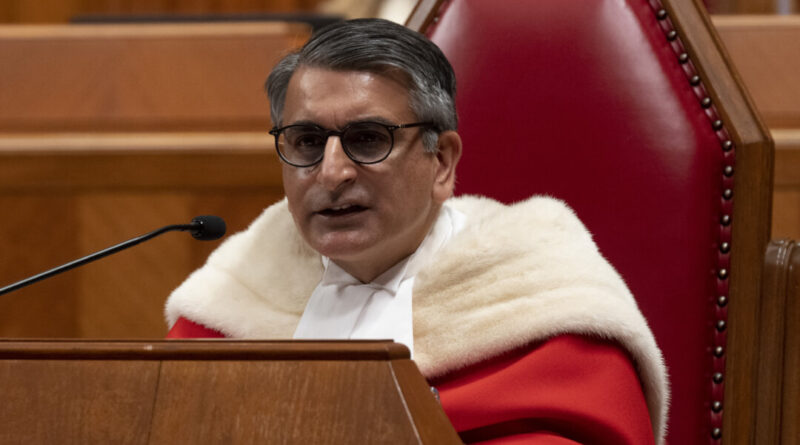Quebec Requests Supreme Court Judge to Step Down From Bill 21 Challenge
The Quebec government is requesting a Supreme Court of Canada judge to excuse himself as the court decides whether to hear an appeal regarding the province’s secularism law, Bill 21.
The province argues that Justice Mahmud Jamal lacks the necessary impartiality to preside over the case due to his previous role as chairman of the Canadian Civil Liberties Association’s board of directors when the organization challenged Bill 21 in Superior Court in 2019.
In a letter dated July 3 and addressed to the highest court in the country, as initially reported by Le Devoir and obtained by The Canadian Press, Quebec Attorney General Simon Jolin-Barrette contends that it would be inappropriate for Justice Jamal to participate in a case “in which he was involved.”
The Canadian Press also obtained letters from the Quebec secularism group, Mouvement laïque québécois, and a feminist organization, Pour les droits des femmes du Québec, both of which similarly requested Justice Jamal’s recusal for the reasons mentioned by Mr. Jolin-Barrette.
On June 25, following the initial concerns raised, the Supreme Court stated that Justice Jamal has no intention of recusing himself from the case. According to the letter, a copy of which was also obtained by The Canadian Press, “He believes there is no real or reasonably perceivable conflict of interest that would require him to step down.”
In February, Quebec’s Court of Appeal upheld the province’s secularism law, which prohibits certain public sector employees from wearing religious symbols while on duty.
The Canadian Civil Liberties Association and other organizations have requested permission to appeal this decision to the Supreme Court, which has yet to announce if it will hear the case.
Justice Jamal was appointed to the Supreme Court on July 1, 2021, having served as a judge on the Court of Appeal for Ontario from 2019 to 2021. Prior to his judicial role, he practiced law at Osler, Hoskin & Harcourt LLP for more than 23 years.
In a questionnaire completed during the Supreme Court appointment process, Justice Jamal disclosed that he had been a member of the CCLA’s board of directors for over 13 years, including a period as chairman. He also represented the organization as an intervener in multiple appeals before the Supreme Court, including two cases involving freedom of religion.





